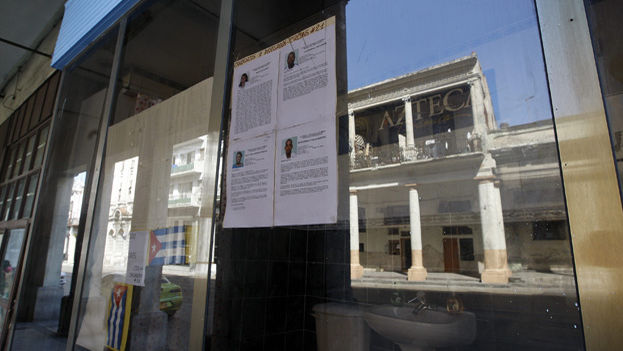
![]() 14ymedio, Reinaldo Escobar, Havana, 27 July 2017 — The starting point for the Cuban electoral process is undoubtedly the disclosure of the voter register, the list of all those who have the right to mark a ballot at the polls. The preparation, public character and possible omissions of these lists decisively influence the course of the whole process.
14ymedio, Reinaldo Escobar, Havana, 27 July 2017 — The starting point for the Cuban electoral process is undoubtedly the disclosure of the voter register, the list of all those who have the right to mark a ballot at the polls. The preparation, public character and possible omissions of these lists decisively influence the course of the whole process.
The electoral commissions of each constituency creates this listing starting from something with a vague legal character known as the “Book of Registered Addresses.” A document that, as a general rule, is managed by the person in each precinct in charge of the Committee for the Defense of the Revolution (CDR) Vigilance Front.
The book has multiple functions, from serving as the basic voter list, to functioning as a control mechanism to prevent people who don’t have that address on their identity cards from living in a particular building. For years, the register from each CDR has been used as evidence to fine, evict and deport to another province, residents alleged to be illegal.
From this collection of names to what are clearly police matters, a process that should have a merely civic focus is entertwined.
One of the least known features of the island’s electoral system is precisely this lack of a permanent and independent entity that is responsible for registering voters and that deals with all the formal aspects of an electoral roll. Instead of that, it remains in the hands of a notoriously political organization like the CDRs.
In the announcements made by the official press on the elections, this detail, of transcendence importance, is ignored. The fact that, at the base of the People’s Power one can trace the signs of ideological control over this governing body, is not something that the media controlled by the Communist Party want to shine a light on.
Every time elections are called, the commissions that bring them to fruition begin to form, and after fulfilling their functions they dissolve. This process is a substitution for the National Electoral Councils with elected members that exist in other countries, and that answer to the voters and possible observers.
The 1992 Electoral Law gives the Council of State the responsibility to designate the National Electoral Commission, which, in turn, appoints members in the provinces. These make up the municipal commissions that select the members at the district and precinct level. They are the ones who choose the members of the Electoral College for each precinct.
As in a sequence of Chinese boxes of which no trace will be left, each of these commissions is dissolved as soon as the voting is over. They will only be constituted again, presumably with other members, when the Council of State calls for new elections.
In each municipality, the Registry of Voters is prepared with those who have the legal capacity to exercise the right to vote. The Law is ambiguous when it expresses that the citizen is registered, without specifying whether they do it of their own volition or if, without being consulted, they are included in the list.
A few days before the polls are opened, the printed voters lists are posted in public places. Next to the name of each voter, one can read their date of birth and personal address. In all the years that this method has been in use, few have commented on the violation of privacy represented by the disclosure of these private data.
The information is displayed for at least 30 days to provide an opportunity to correct errors or request the exclusion or inclusion of a person. A demand that can be made by the interested party, their representative, or an immediate family member.
There are very few cases of citizens who request to be excluded by on the basis of some kind of political disagreement. In fact, those who have some inclination to opposition are often erased from the lists because they did not vote in the previous elections. To demand the right to be registered is the only way that abstention is recorded in case of not voting in the elections.
Beginning on September 21, while residents of a neighborhood line up to buy bread or the latest products arriving in the ration market, the will see these election registers. Few of those who look for their names on these lists will
Instead of questioning the creation of the lists, the majority of voters will take advantage of them to discover that Roberto’s second dame is Filomeno, or that the single lady on the fifth floor just turned 50. They will find out that Yolandita was registered at birth under the name Ricardo, and that Teresa’s husband is not registered at his wife’s address. And so political control will have connected its first link.
